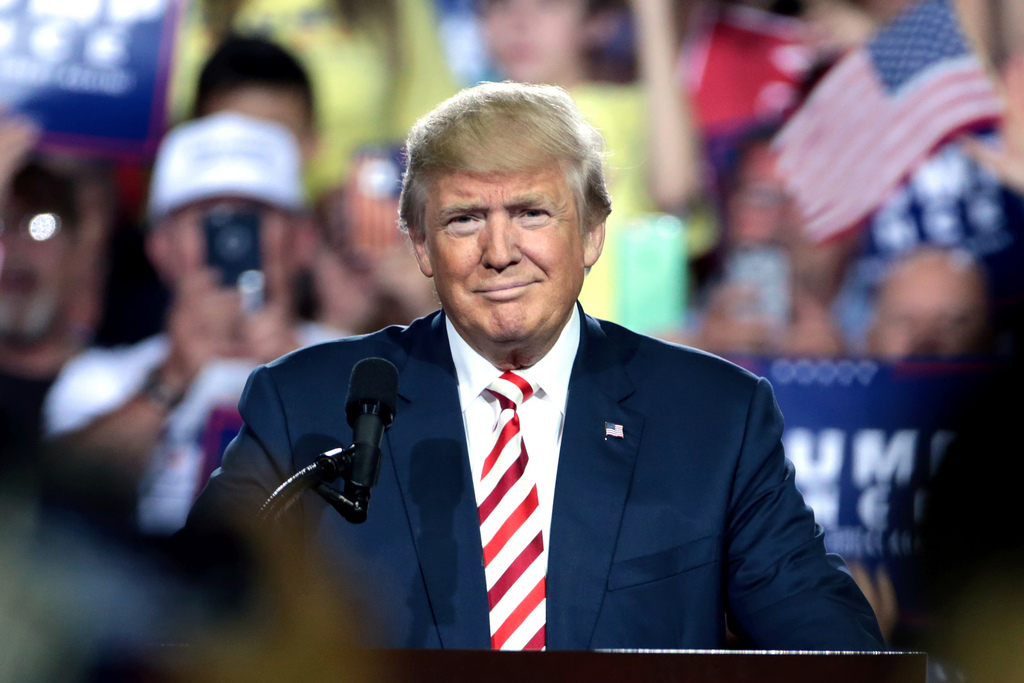By Christine Condon and Julia Heimlich
Staff writers
Furthering his efforts to stymie illegal immigration into the United States, President Trump signed a revised executive order Monday that upheld various components of January’s order, but loosened the reigns on visa holders and Syrian refugees.
The initial Jan. 27 order banned citizens from Iraq, Iran, Libya, Somalia, Sudan, Syria and Yemen — seven Muslim-majority countries — from entering the U.S. for 90 days, barred all refugees for 120 days and Syrian refugees indefinitely.
The new order — which will go into effect March 16 to give those affected a 10-day warning — bans six predominantly Muslim countries, now excluding Iraq, from U.S. entry for 90 days. It also now bars Syrian refugees for 120 days along with other refugees, and no longer includes provisions favoring migrants of religious minorities, such as Christians and Jewish people, who come from the banned countries.
[READ MORE: University of Maryland President Wallace Loh speaks out against Trump’s travel ban]
Trump tweeted Jan. 30 that his reasoning for not giving details ahead of the initial travel ban was to prevent a situation where “the ‘bad’ would rush into our country” while they could.
Current visa holders will no longer be affected by the new legislation, whereas the original ban also applied to U.S. permanent residents from the barred countries who were visa holders. The Secretary of State and Secretary of Homeland Security, under a “case-by-case” basis, will have the power to waive those who fall into the category of the ban, the order stated.
The University of Maryland’s Our Revolution chapter vice president Christopher Walkup noted he wasn’t convinced the ban’s changes would lessen the repercussions on populations such as Muslims.
“Throughout the course of the primary and general campaign, we’ve seen Donald Trump go from what he is officially labeling a Muslim ban to this diluted version that he now calls a travel ban,” said Walkup, a senior government and politics and theatre major. “But in essence, it is still a Muslim ban. It is a Muslim ban in spirit, and it’s going to be a Muslim ban in practice.”
This university boasts a large foreign-born student population, with 4.6 percent and 33.6 percent of undergraduate and graduate students coming from other countries, respectively, as of October. About 350 university members were affected by January’s order, which a federal judge in Seattle temporarily halted on Feb. 3 and an appeals court refused to reinstate on Feb. 9. One doctoral student was unable to return to the U.S. from Sudan until Feb. 23 because his visa had expired abroad, and another university student and green card holder was detained at Washington Dulles International Airport on Jan. 28 for about five hours.
[READ MORE: UMD signed a letter against Trump’s travel ban, along with nearly 600 other colleges]
Robert Koulish, this university’s MLAW program director, said he predicts this new order will be knocked down as well. “It’s a little bit tempered, but I think that the problems the courts had with the first one, they’re likely to have with this one as well,” he said. “There really doesn’t seem to be any rational basis for excluding individuals from these six countries—from my knowledge there’s been no convictions on domestic terrorist charges from anybody from these six countries since 9/11.”
State Secretary Rex Tillerson said Monday that the order is part of “ongoing efforts to eliminate vulnerabilities that radical Islamic terrorists can and will exploit.”
No one has been killed in a terrorist attack by a national from one of the countries in the ban since 9/11, Politifact has reported.
Democratic National Committee chairman Tom Perez tweeted Monday morning to warn those who were hopeful about Trump’s revisions to think again.
“If Trump is allowed to pass subsequent measures like this, and continue to divide us based on where we’re from, what God we worship — anything like that — I think that he might be able to accomplish his intended purpose of dividing the country,” Walkup said.
Some conservative politicians reacted positively to the revised travel ban. Sen. Lindsey Graham (R-South Carolina) tweeted his support and said “this executive order will achieve the goal of protecting our homeland and will, in my view, pass legal muster,” in a statement. Sens. Tom Cotton (R-Arkansas) and Chuck Grassley (R-Iowa) also released statements backing Monday’s order.
My statement on today’s Executive Order to keep America safe. pic.twitter.com/Pq4yHrRrrT — Lindsey Graham (@LindseyGrahamSC) March 6, 2017
Conservative pundit Ann Coulter expressed opposition to the change allowing Iraqi citizens into the country.
“Iraq War Disaster List: We not only had to spend billions, sacrifice 1,000s of US lives, but now we also have to take Iraqis as ‘refugees,'” she wrote in a tweet Monday.
Democrats held a rally outside the White House Monday night in opposition of the altered ban. About 1,300 people marked on Facebook that they were interested in attending the rally.
This article will be updated.



